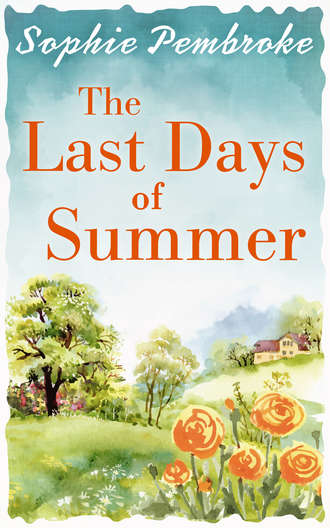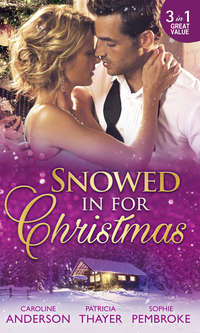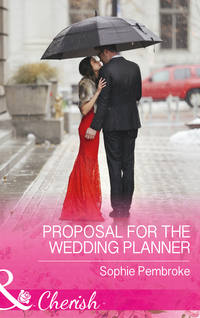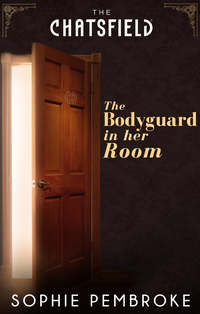
Полная версия
The Last Days of Summer: The best feel-good summer read for 2017
Strange. He was nothing even close to my type – I went more for darker, more brooding good looks. Like Duncan. And Greg, come to think of it. Edward was all golds and creams, like Isabelle’s decorating scheme. Like sunshine.
And for some reason, I couldn’t help but watch him.
“Now, to business,” Nathaniel said, leaning on the back of Edward’s vacated chair. “If I’m going to eat, I’ll need a place to sit. Now, which chair do I normally sit in, I wonder?”
Curled up on the base of Nathaniel’s seat, Caroline giggled.
He leant further across the chair back, angling his upper body to stare at Caro. “Well, I’m head of the family, so it makes sense that I’d normally sit… at the head of the table!” He lurched across and grabbed at Caroline’s legs, and she squealed. “But who’s this sitting in m-yyy chair?”
“It’s me, it’s me!” Caro squawked, as he started to tickle her. “And I’m not moving!”
“Is that right?” In one deft movement, and surprisingly fast for a man of his age, Nathaniel hefted his youngest granddaughter out of the chair, swung his body round to take the seat, and dumped Caro on his lap. “Hah!” he said, reaching for the unused wine glass above Caroline’s plate. “I am victorious. Servants, bring me wine!”
I couldn’t not laugh, no matter how hard Isabelle was rolling her eyes. Dad was openly grinning, and even Greg was looking amused.
Therese passed the red wine down the table towards me, and I filled up Nathaniel’s glass, just as Edward reappeared and replaced Caroline’s plate with a new, heaped one, before reclaiming his seat.
“How was the journey?” my grandfather asked me, ignoring the food and taking a gulp of wine instead.
I shrugged. “Not so bad. I got here about four.”
“I’m afraid I was shackled to my desk,” he said, with an exaggerated sigh. “Or I would have been here to greet you.”
“Since you were the only one who knew she was coming,” Isabelle said pointedly, “it was really very rude not to offer to meet her at the station.”
“If only she’d received an invitation.” Therese sighed and looked innocently around her. “She could have RSVPed and avoided all this confusion.”
“What story are you writing?” Caro asked, bouncing enough in Nathaniel’s lap to spill a few drops of his wine onto his plate as he lifted his glass. “Is it about people telling lies and secrets and death and stuff? My friend Alicia’s mum says that’s all you ever write.”
Nathaniel muttered something under his breath that I couldn’t quite hear, but could probably guess at. Edward obviously heard, though, as he choked on his mouthful of wine.
“My stories,” Nathaniel said, loud enough for us all to hear, “are every one of them different and new and utterly unlike anything I have written before. This one more than ever.”
Across the table from me, Edward put down his wine glass, too hard, and stared at his empty plate, apparently not even noticing as a few drops of wine sloshed onto his hand.
“But what’s it about?” Caro pressed. Nathaniel shook his head. “You’ll all just have to wait to read it. You, longer than most,” he added, patting Caroline’s shoulder, “as not all sections are suitable for such a young lady.”
Except for Edward, I realised. Edward, as my grandfather’s assistant, would know exactly what he was working on, how it was going and whether he really was writing at all, or just avoiding Isabelle.
Is that why he’s looking so nervous? I wondered. If Nathaniel wasn’t writing, it might explain why Edward was so keen to make himself invaluable elsewhere in the household. A writer who didn’t write wouldn’t have much need for an assistant, after all.
“But I want to hear a story,” Caroline said, twisting in Nathaniel’s lap.
“Ah, but that is a different matter entirely,” Nathaniel said. “I may not be able to tell you about the book I’m writing now, but far be it for me to deprive a young girl of a chilling tale of betrayal and murder when she wants to hear one!”
“That’s quite enough, Nathaniel,” Isabelle said, standing abruptly. “Now, who wants to help me clear the table?”
Caroline shook her head. “Not me, Grandma. I’m listening to the story.”
At the end of the table, Ellie got to her feet with her usual grace, before the vein throbbing at Isabelle’s temple burst. “I’ll help,” she said, and began systematically gathering up plates, clanking them together loudly.
Fifty years of marriage had obviously instilled some sense of self-preservation in my grandfather, because he waited until Isabelle had carried the first load of plates out of the room before he began to tell his story. Greg had apparently learned the same in less time – he was already taking the plates from Ellie’s arms and whispering something to her. They left the room together, and I couldn’t help but watch them go.
“Now,” Nathaniel said, his eyes on Isabelle as she disappeared into the kitchen. “This story is a special story.”
“Why’s it special?” Caro asked, pulling her legs up and wrapping her arms around them.
“Because it’s about this house,” he explained, “and the people who used to live here.” At his words, I knew instantly the tale he would tell. I wasn’t entirely sure it was suitable for a nine-year-old, but maybe Nathaniel would edit it for Caro. A consummate storyteller, he always was a great judge of his audience.
As the others disappeared in search of digestifs, I pulled my chair in closer to better hear the story. Across the table, I realised, Edward was doing the same. I raised my eyebrows at him and he shrugged. “I’m a sucker for a good story,” he said. “How else do you think I got pulled into this gig?”
“If everyone is quite comfortable,” Nathaniel said, feigning considerably more patience than I happened to know he possessed, “then I’ll begin.
“This house has stood on this land for hundreds of years.” His voice had dropped into a cadence I recognised from childhood – that of a storyteller, rather than a writer. The sound of it, warm and familiar, washed over me and I shivered as I listened to his tale. “There are so many stories in its walls, I could never have time to tell them all. But this is a story of the first family to live here.
“Long ago, a man named John Harrow, a merchant, bought this land and commissioned a fine house to be built. But what is a fine house without gardens? So once the house was finished, Harrow hired a head gardener, a man of impeccable reputation. And that gardener brought with him his apprentice: a boy with incredible talent, a boy who, local people said, could make dead plants bloom.”
“Is that possible?” Caro whispered loudly, leaning back towards Edward.
“Absolutely,” he replied, straight-faced. “But very rare.” I hid my smile.
Nathaniel raised his eyebrows until Caro settled back down, then continued. “Now, Harrow had only one child, a daughter, the apple of his eye. She was young and beautiful and ready for love.”
“Did she fall in love with the apprentice?” Caro asked, bouncing slightly. Nathaniel ignored her.
“The moment she set eyes on the apprentice, one summer’s day in the new Rose Garden, she fell in love. And he, by return, worshipped her from the moment he saw her.”
“I knew it,” Caroline whispered, to me this time.
“The young couple knew that John Harrow wouldn’t approve,” Nathaniel said, raising his voice a little. “So they kept their love a secret, and met only by moonlight, in the Rose Garden where they first fell in love. And as summer turned to winter, the apprentice picked impossible flowers from the dormant rose bushes for his beloved.
“All was wonderful, until the day John Harrow saw roses in his house at a time of year when nothing blooms, and his daughter watching the apprentice from the balcony of what is now the Yellow Room.”
“And you complained about sleeping there,” Edward murmured across the table to me. He raised his eyebrows and I blushed, remembering exactly what he’d seen on that balcony that afternoon.
“I didn’t realise I was part of a literary tradition,” I whispered back. I was fairly sure that detail was a new addition to the story. Nathaniel never could tell a story quite the same way twice.
“Suspicious, Harrow lay awake that night, listening for his daughter. When he heard the staircase creak in the darkness, he picked up his gun and silently followed her to the Rose Garden, where he saw her kissing the apprentice.”
Nathaniel’s voice dropped again, and we all leant in closer to listen. “Harrow went crazy with rage. His beloved daughter, kissing a gardener? It was unthinkable. He called to her to get away from the apprentice, but the young man put himself between his love and her father. Harrow wasted no time. He pulled out his gun and shot the apprentice.”
Caroline jumped as Nathaniel’s voice rose suddenly at the shot being fired. “Was he okay?” she asked.
Nathaniel shook his head sadly. “The apprentice died that evening, and that same night Harrow’s daughter took to her bed and stayed there. She wouldn’t eat, would drink nothing but a little water, no matter how much her father begged her.”
Caroline’s eyes were huge, now, with all her attention on Nathaniel. “What happened next?” she asked in a whisper.
“Nothing happened. Nothing happened for eleven days and eleven nights. She stayed in bed all over Christmas, and refused to move until New Year’s Eve came around. Then, that night, she asked to be taken out to the Rose Garden.
“Her father, hoping that she might be ready to forgive him, agreed, and she was carried out in her blankets. There, she asked to be placed on the bench where she’d sat with her love. ‘There are no more flowers,’ she said, looking around the garden. Her father tried to reassure her that they’d be back with the spring, but the young woman said, ‘No. There are no more flowers for me.’ Then, with a final breath, she died.”
Caroline gulped a sob, and it occurred to me again that this possibly wasn’t the most appropriate story for a nine-year-old, just before bedtime. But Nathaniel wasn’t finished.
“It’s said,” he continued, his voice almost inaudible, “that she walks there still, on moonlit nights, looking for her lost love.”
“A ghost?” Caro asked, all excitement again. “We have our own ghost? That’s brilliant.” Slipping off Nathaniel’s knee, she skipped towards the door. “I’m going to go see!”
Was that the explanation for the strange girl I’d seen in the Rose Garden that afternoon? Even for Rosewood, it seemed impossible.
Nathaniel stretched his legs out under the table, and pushed back his chair. “Well, now I’m in trouble.”
“I think you already were,” Edward pointed out, before finishing off the wine in his glass.
From the hallway, we all heard Isabelle saying sharply, “Caroline Ryan, you are not going out in the garden now. It’s past your bedtime. You are going to go up those stairs and put on your pyjamas.” There was a short pause, before she added, “Now,” over whatever objections Caro was trying to raise.
I checked my watch; it was almost eleven – more than past Caro’s bedtime, it was very nearly mine. It had, after all, been quite the day. “I think that might be my cue,” I said, and got to my feet.
Nathaniel stood, too, and put his arms around me, pulling me in close so I could smell the pipe smoke on his jumper. “It’s good to have you home, Kia.”
“It’s good to be here,” I mumbled back, burying my face against the scratchy wool. And, just for a moment, it was good. Whatever happened tomorrow, whatever Ellie had told everyone, right then, there was nowhere else in the world I wanted to be but Rosewood.
Upstairs in the Yellow Room, I could just make out the sound of Caroline protesting pyjamas. Switching off the bedroom light, I sat by the balcony, looking out at the darkened garden, Nathaniel’s story fresh in my mind.
I didn’t see any ghosts, but I watched for a while, just in case, before climbing into bed and dreaming of meadows of flowers in winter.
Chapter Three
“Everyone keeps their ghosts in the attic, Agnes. It’s the only place no one ever wants to look.”
Ghosts in the Attic, by Nathaniel Drury (1973)
I’d left a lot of stuff behind when I escaped to Scotland. I’d been living at Rosewood full time for almost two years when I left, working on a local paper nearby, and I’d accumulated a significant amount of junk that hadn’t fitted in my suitcase. If Caroline was sleeping in my attic room, then someone would have had to move my stuff to make space for her.
I woke up the next morning with a desire to rediscover what I had left behind.
It was only just eight, but the day already felt warm. Sorting through the clothes I’d brought with me, I realised that the office wear I’d filled my Perth wardrobe with just didn’t fit in at Rosewood. Maybe, if I could find my belongings, there’d be some more suitable clothes there.
Eventually, I settled on a pair of jeans that usually got worn with stilettos, so hung over the ends of my bare feet, and a lace and silk camisole that only normally saw the light of day through a slightly-too-sheer work cardigan I’d somehow neglected to pack. It would do until I found something else, anyway. Fixing my hair back from my face, I set out to investigate the attic.
The obvious place to start was my old room, tucked under the eaves of the house, up in the attic, so I climbed the rickety wooden staircase at the end of the corridor and knocked lightly on Caro’s door. There was no response, so I slowly turned the handle and pushed the door open, wincing at the awful creaking it made.
Luckily it didn’t matter, since Caroline was already up and out. “Probably ghost-hunting,” I muttered, glancing around the room. The walls and the furniture were the same, as was the bright pink radiator I’d insisted on, installed against the only full-height wall. The other walls sloped downwards to the low window and window seat, familiar pink pillows still stacked along the wooden bench.
But there was no sign of anything else that belonged to me. The brush set on the dressing table, the clothes hung over the back of the chair, the books on the bookcases, even the pictures on the wall – none of them were mine. I shut the door behind me.
There was a large storage area just along the hallway, which I remembered as dusty, stuffy and full of rotting cardboard boxes. Of course that was where they’d have stashed my stuff.
The door was unlocked, and as I pulled it towards me a rush of hot, stale air hit my lungs. With one last deep breath, I headed in, leaving the door open behind me in the hope of ventilation.
The attic was much as I remembered, and I tripped over piles of messily rolled rugs and faded cushions on my way through the box maze. On the far side of the space there was a window, and I made my way towards it, hoping it hadn’t been painted shut.
It hadn’t, and the morning air breezing in over the gardens was cool and fresh. Beating dust out of a large floor cushion, I settled down at the base of the window, and started pulling likely looking boxes towards me. As I pulled out books and pictures, the musty smell of damp paper rose up from the prematurely yellowed and crinkled pages.
Every box I looked in awakened waves of memory I hadn’t even been aware I was suppressing. A storybook Nathaniel wrote me for my eighth birthday; a pair of absurdly expensive pink heels I’d bought with my first student loan and never really worn, because they didn’t fit with the agreed student uniform of jeans and slobby jumpers; postcards of Devon from Ellie and Greg’s first holiday away together; a wire-bound copy of a series of fantastical short stories I’d written for a creative writing course as part of my degree, taking their starting points from my childhood at Rosewood. A hundred wonderful things I’d forgotten all about.
And, shoved down the side of a box of musty paperbacks, a stack of unopened letters, addressed to Ellie, in my handwriting. Still bruised from my awkward welcome home, I couldn’t quite bring myself to open them yet. I had a horrible feeling the letters somehow wouldn’t say what I knew I’d been trying to articulate. Instead, I turned to my stories.
In the warmth of the attic, with dusty cushions at my back, I settled in and lost myself in my own tales – wincing at jarring turns of phrase, but smiling when I found something I’d forgotten, something true and real from my childhood.
I hadn’t fully remembered, for example, that each tale took a turn for the imaginary, somewhere around the second page. Forgotten that my own life hadn’t been exciting enough for me, even then. That I’d needed to pretend there was something more.
I was so engrossed in the pieces of my past, I failed to notice that my hiding place had been discovered until Nathaniel’s voice interrupted me from the doorway. “What are you reading?”
Smiling up at him, I waved the poorly printed manuscript. “Stories from a lifetime ago,” I explained, as he came closer, settling himself on a cushion opposite me. “Just some stuff I wrote for a writing class, once.”
“And here was me thinking you might be hiding,” he said, his smile a little too knowing. “Anything else worth reading in there?”
I shoved my letters to Ellie further down inside the box, and pulled out one of the birthday storybooks. The golden inked lettering on the front read The Garden Ghost. “You wrote this for me for my eighteenth, I think.” I glanced through the pages before handing it over. “The story’s a little different from the one you told Caroline last night.”
In my book, the daughter had fallen pregnant, shaming the family, but refusing to speak the name of her lover. She died in childbirth, and it was only once the child made dead flowers bloom, several years later, that John Harrow discovered the truth about his daughter and the apprentice. Which was the real story? Or were they both just figments of Nathaniel’s imagination? I knew better than to ask. To my grandfather, truth and fiction were almost the same thing, there to be intertwined to make the best story.
I worried, sometimes, that I’d inherited that trait, only without using it to write the kind of books that won awards.
Nathaniel flicked through the book with a chuckle. “Caro’s still a little young for some stories.”
Watching him reread his own words, I remembered something that had been bothering me. “Why didn’t you tell me that you had a new assistant?”
Nathaniel looked up. “Edward? Didn’t I?” He shrugged. “No idea. I suppose that I was always more interested in what you were up to, whenever you called.”
Which was very unlike my grandfather. Nathaniel always wanted to talk about the trials and tribulations of life at Rosewood; a new assistant would normally be prime fodder.
Suddenly, I wondered what other secrets he’d been keeping, what else I’d missed. Staying in touch with Rosewood only by phone or the odd email with Dad, I’d been left out of all the day-to-day events, the little things that tied the family together – and excluded me. I’d called home, once a week on a Sunday, and spoken with Mum and Dad, with Caro, and Therese, sometimes, if she was there. Occasionally I’d shared a few words with Isabelle, too, but not often. That, at least, made more sense now. Whatever Ellie had told her about what happened, it had been enough to dig a rift between me and my grandmother that couldn’t be crossed by phone.
I’d never spoken to Ellie, of course.
Nathaniel had tended to call me, erratically, as he thought of it. Sometimes we’d talk for hours, others just for a few moments. But I’d never felt that gulf between us that I’d felt with Isabelle, or even the slight distance that had grown between me and my parents, by virtue of the miles separating us, if nothing else. I’d thought my relationship with Nathaniel was unchanging and unchangeable.
But he hadn’t told me about Edward. Why? What else had he kept from me? What else had I been left out of, by being away?
And would I ever be able to catch up?
Nathaniel reached out and selected another of the storybooks he’d written for me – the one he’d presented to me on my tenth birthday, whispering in my ear that the Forest Maiden of the title was really me. I’d held that secret close to my heart all year, I remembered, waiting for my next story. They were all about me, really, I came to realise, much later.
“How many of these did I write for you?” he asked, flicking through the pages.
“One a year until my twenty-first birthday.” Just five years ago. At the bottom of the pile was the board book he’d created for my first birthday, full of brightly coloured pictures of things you might find around Rosewood, each with a little rhyme after them.
“I always hoped you’d start writing your own,” he said, still staring at the words on the page. “You had such an imagination… I always thought you’d be a writer.”
“I am,” I said, amazed. Even when I’d signed up for my creative writing course, he’d never said that it was a good idea, never asked to see my coursework.
“I suppose,” he said, putting down the book and picking up the next one in the pile. “But it’s not really using your imagination, is it.”
“You never said anything.” My throat was suddenly tight at the idea that I hadn’t lived up to my grandfather’s dreams for me, even if I hadn’t known what they were. “I never thought…”
He looked up at me then, and smiled, his pale blue eyes soft. “Well, you had to choose your own path, after all.” He dropped the book back onto the pile. “I always told myself that there was time. Plenty of time for you to find your own way.”
Creaking to his feet, he bent down and kissed the top of my head. “You’ll get there,” he whispered, before turning and leaving, pulling the door shut behind him as I sat and blinked away my tears.
I emerged from the attic at mid-morning, by which time the rest of the house was busy running errands for Isabelle. I, however, had more important things to attend to.
If I wanted to belong at Rosewood again, to be a part of family life once more, there was only one place for me to start: with my sister. I needed to know who knew our secrets, and who might forgive me, even if Ellie couldn’t. I needed to know if I really could come home again. Even if that answer hurt.
“Have you seen Ellie?” I asked Mum, when I stumbled across her tying ribbons on menus in the kitchen. She was dressed in a long, tie-dye skirt and bright pink T-shirt that contrasted starkly with the elegant cream and gold menus.
Mum looked up sharply. She might look the woo-woo hippy part, but when it mattered her edge was knife-keen. “I’m not sure now’s the right time, sweetheart. Your sister’s very busy today.”
“I just want to talk to her about something,” I said, wondering again how much everyone at Rosewood knew about the situation.
Mum sighed, a proper world-weary parental sigh. “Why don’t you and I have some tea, eh?” And, without waiting for a reply, she stood and crossed the kitchen, flicking the kettle switch and reaching for the cups and saucers. Resigned, I took a seat at the kitchen table and examined the menus.
“Kia,” she said, as we waited for the kettle to boil. Then she sighed, a sure sign we were getting to the important stuff. “I don’t know what happened between you and your sister, and I’m not sure that I really want to. I can make certain assumptions, and one of those is that Greg’s involved somehow.”
I sat very still, and very quiet, privately hoping that if I didn’t say anything, she might forget that I was there and wander off to annoy someone else.
But she went on: “Whatever happened, it was two years ago. And while I do sincerely hope that you and Ellie will make up, of course I do…”
“She’s not showing any signs of forgiveness,” I finished for her.
Mum sighed again. “Exactly.” Picking up a ginger cookie, she placed it on a saucer and put it in front of me. “And perhaps it’s not a good idea to force it. You know Ellie; she has to come to her own decisions, when she’s ready to make them. I think you have to let this happen in its own time.”








